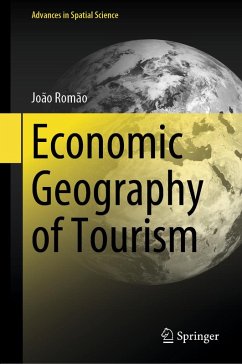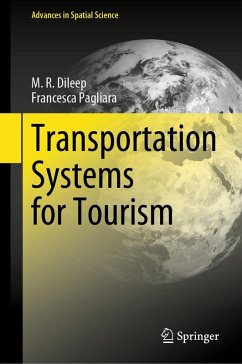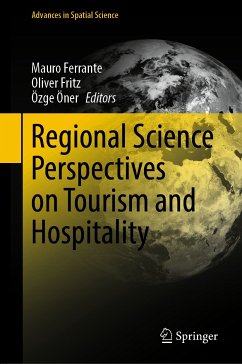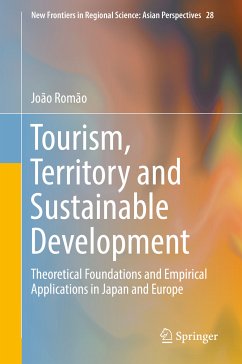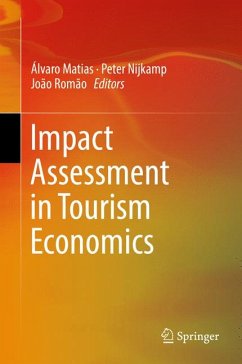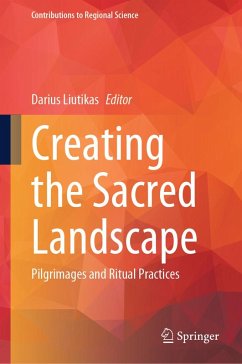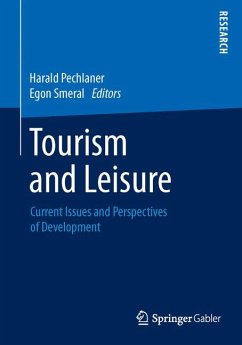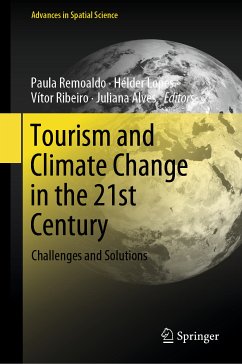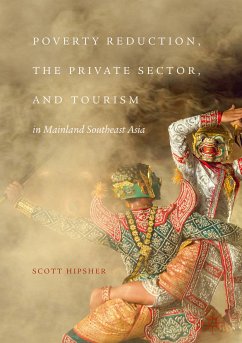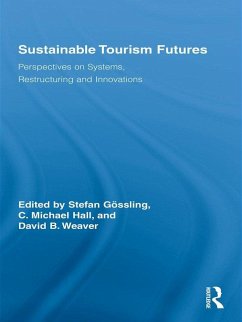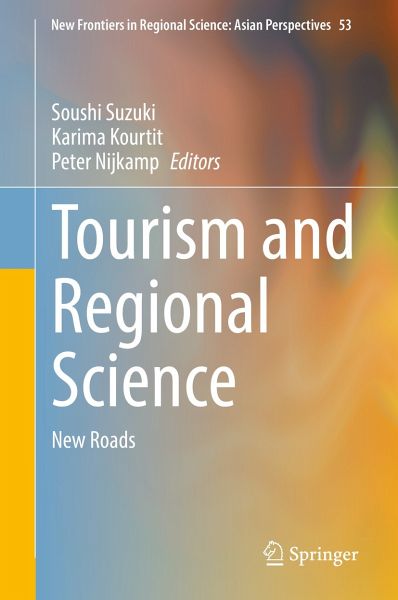
Tourism and Regional Science (eBook, PDF)
New Roads
Redaktion: Suzuki, Soushi; Nijkamp, Peter; Kourtit, Karima
Versandkostenfrei!
Sofort per Download lieferbar
128,95 €
inkl. MwSt.
Weitere Ausgaben:

PAYBACK Punkte
64 °P sammeln!
This book provides new roads, perspectives, and a synthesis for tourism and regional science research. Tourism has become one of the most dynamic sectors in the economy and has exhibited a structurally growing importance over the past decades. In many countries the economic significance of tourism now exceeds that of traditionally strong sectors like agriculture or transportation. It is noteworthy that in recent times, tourism research has gained great momentum from the perspective of: the leisure society; the psychological tension between hard work and a more relaxed lifestyle; and the produc...
This book provides new roads, perspectives, and a synthesis for tourism and regional science research. Tourism has become one of the most dynamic sectors in the economy and has exhibited a structurally growing importance over the past decades. In many countries the economic significance of tourism now exceeds that of traditionally strong sectors like agriculture or transportation.
It is noteworthy that in recent times, tourism research has gained great momentum from the perspective of: the leisure society; the psychological tension between hard work and a more relaxed lifestyle; and the productivity-enhancing or productivity-diminishing effects of leisure, recreation, and tourism. An abundance of new literature in the field of tourism management can also be found, for instance, in the areas of hospitality management, cultural events management, destination competitiveness policy and marketing, and transportation and logistics strategies, while much attention is also being paid to the opportunities provided by digital technology for the tourism sector. In addition, in the light of the many negative externalities of a rapidly growing tourism sector, there is also an abundant literature on the environmental and sustainability effects of tourism.
This book has the following objectives: to explore the interwoven connection between regional science and tourism research; to suggest promising pathways for innovative regional science research at the interface of tourism and space; and to demonstrate the need for a new perspective on the tourism and regional science nexus by means of empirical studies.
Dieser Download kann aus rechtlichen Gründen nur mit Rechnungsadresse in A, B, BG, CY, CZ, D, DK, EW, E, FIN, F, GR, HR, H, IRL, I, LT, L, LR, M, NL, PL, P, R, S, SLO, SK ausgeliefert werden.



